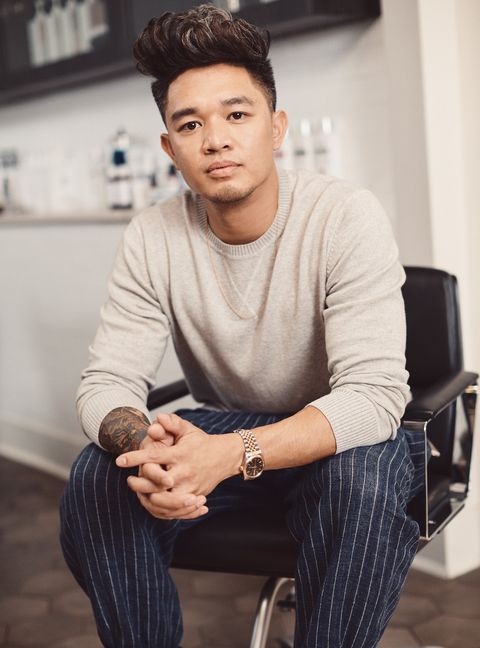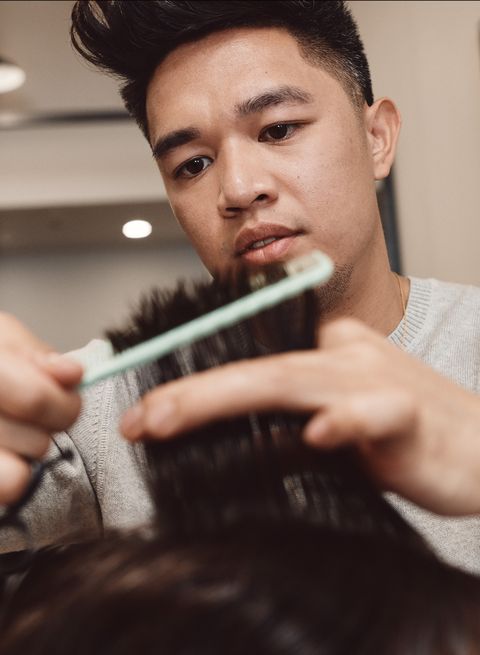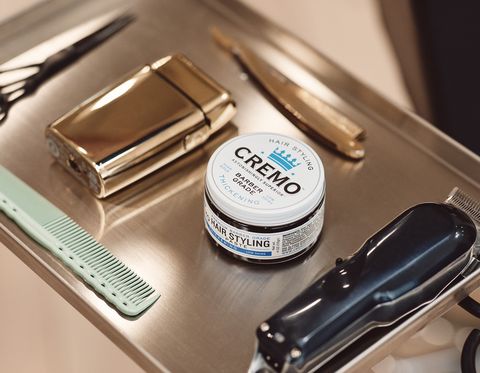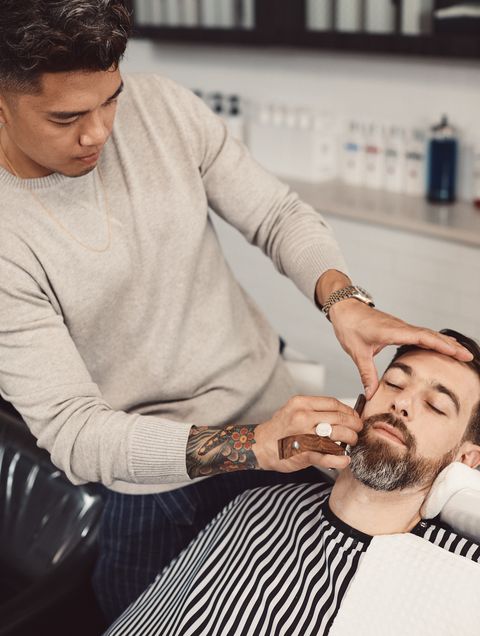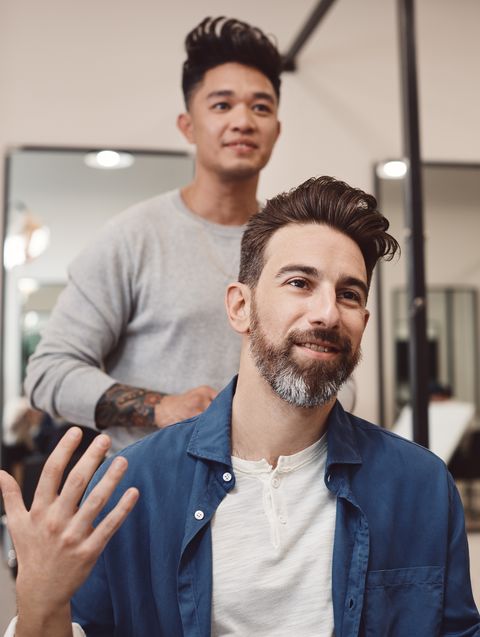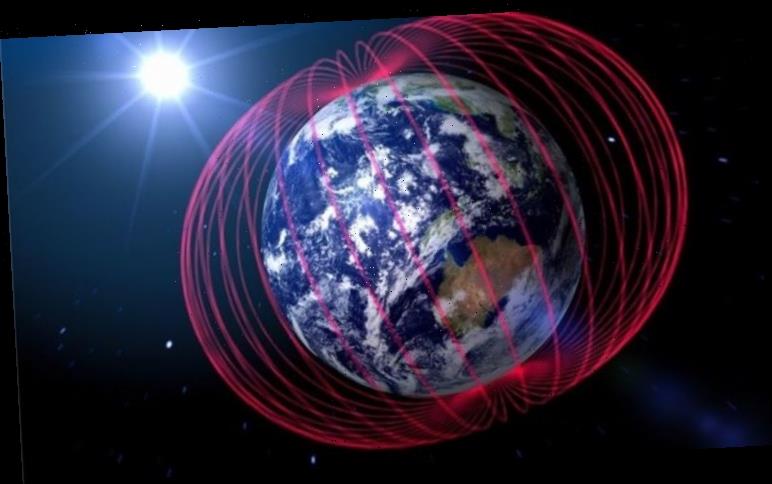I’m sitting in the Silver Vine Room in Summit, New Jersey, about to get the most expensive haircut of my life from one of the most influential barbers in the country. And I’m terrified.
Not of how it will look. My barber today is Mark Bustos, a veteran of some of the country’s most prestigious shops. Designer Phillip Lim trusts Mark to cut his hair—I’m pretty sure I can too.
I’m not worried about our vibe, either. Bustos is known for roaming the streets of New York on Sundays giving free haircuts to the homeless, motivated by nothing other than being a really, really nice guy. He has no problem building a rapport with me.
No, I’m shook because in a few hours, my University of Virginia Cavaliers will play in the NCAA Men’s Basketball National Championship game for the first time ever, and I haven’t cut my hair or playoff beard since before their magical tournament run began. The group chat is livid, convinced I’m about to put a hex on the whole thing. “Duty calls,” I reply.
But old superstitions die hard. Admittedly, I wonder: What if they’re right?
What do you do in such a moment of crisis? If you’re like me—and as I’ll soon find out, like most guys—you confide in your barber.
So I tell Mark what’s up. He pauses cutting to look me in the eyes through his mirror and listens intently. Realizing he’s giving a haircut to a fanatical manchild, he laughs and says, “Why worry? What feels better than a fresh haircut?”
“Everyone knows that feeling of having their guy.”
That’s the ethos that has guided Bustos his entire life. As a kid, he recalls his friends going to the barber with their parents, sitting in the first chair available and going back home or outside to play as quickly as possible. Bustos, however, would walk himself to the barbershop and wait for Pasquale, who gave the best cuts and conversation in the place. Even at age 8, Bustos understood the deeper meaning of a haircut and the value of a barbershop.
“I don’t care where you come from—everyone knows that feeling of having their guy,” Bustos says.
He wanted to give that to people. He decided he was going to be a barber.
At 14, Bustos started cutting his friends’ hair in his parents’ garage. First for practice and fun, then for chicken cutlet sandwiches or whatever he could barter, then for cash. In his bootstrapped operation, Bustos saw firsthand how a barbershop—even a makeshift one—could unite people.
“My garage was where everyone came. Captain of the chess team or captain of the football team, whoever you were, you could come, sit, shoot the shit, and just talk,” he says. “Other establishments, everyone’s in their own little space. At the barbershop, everyone is just there. The place encourages conversation.”
Bustos’ parents were supportive of his work ethic and entrepreneurialism, if not somewhat skeptical. So Bustos did what practical, suburban New Jersey kids do: He went to college and got a BS in Business Management from Kean University. But he never stopped cutting hair. He worked his way through various shops, built a loyal clientele and lucrative business, and eventually put his degree to use by opening his own shops in New York City. He loved his work, but had bigger goals.
“In our minds, especially when we’re younger, we define success as making a lot of money,” Bustos says. “I got to a point where I was able to charge top dollar. But it wasn’t until I stopped looking for success that I found it.”
Bustos is referencing a 2012 trip to visit family in the Philippines that would launch his philanthropic endeavors and garner him international renown. Upon seeing the number of people living in poverty, particularly children, Bustos rented a chair in a local garage-style barbershop and gave free haircuts to as many kids as he could.
“I didn’t have a plan. I just saw these kids living on the streets and knew something had to be done, so what could I offer? What am I good at?” Bustos recalls thinking. “I realized I could bring that back to New York and eventually everywhere I travel for business. I can just put my gear in a backpack and go for a walk.”
“A haircut can be an escape. It’s therapy.”
For seven years since that trip, Bustos has done just that. He spends his one day off each week walking down city streets giving free haircuts to anyone who will let him.
“Once I was in Chelsea Park and there were 10 guys on benches, half of them sleeping. Approaching them, it was kind of scary. But when they realized what I had to offer, rather than feeling scared, I felt protected,” Bustos says.
“I became friendly with a lot of them and they consider me their personal barber,” he continues. “Everyone knows what a good haircut feels like. I think it’s universal.”
So far, Bustos has been right about that. His free haircuts and mission-statement hashtag went viral on Instagram and blossomed into a full-fledged 501(c)(3) called #BeAwesomeToSomebody that aims to inspire people to use their passions for good and share the results.
The impact has been equally huge on a more personal level. Momentarily switching off his clippers, Bustos beams as he describes his most memorable homeless haircut.
“The first haircut I ever gave on the streets of NYC, I’ll never forget. I gave him a mirror to show him what his haircut looked like and the first words out of his mouth were, ‘Do you know anyone who’s hiring?’ I never saw him on the streets again. I take that as a good sign.”
And it’s not just his gratis customers who enjoy the benefits of the barber-client relationship. For many of his customers, Bustos is part stylist, part therapist.
“If you can trust someone with your hair you can trust them with your life.”
“Everyone has their own story. There’s no difference whether they’re on the street or in the salon. When they sit down, I have to make them feel comfortable. That’s the hard part. Over time, people open up.”
How does he build that comfort level? “Start with the hair. If you can trust someone with your hair you can trust them with your life!”
Bustos has a few theories as to why that is. “At a psychiatrist’s office, you’re staring at someone saying, ‘Tell me how you feel.’ It’s awkward. At the barbershop, we’re talking through the mirror. There’s a bit of a barrier where people maybe drop their guard.”
Bustos intentionally avoids turning his chair away from the mirror as much as possible to help ensure eye contact, and to comfort his clients that he’s not doing anything drastic to their look while they can’t see it happening. He teaches this technique in his talks and styling classes.
“A haircut can be an escape. It’s therapy,” Bustos further posits. “If I’m ever running late, which I hate, I’ll apologize profusely. But guys tell me, ‘Take your time, this is my opportunity. Once you’re done I have to get up and go home.”
“The more I do what I do, the more I realize how important it is.”
It’s also a chance for the barber to connect. “I can’t remember what I had for breakfast but I’ll remember what a client said six weeks ago when they come back. There’s just something about that relationship,” Bustos says.
Personally, I’ve got good reason to confide in Mark. I’ve never had a full-on camera crew scrutinizing every snip of my haircut before, and I’m getting increasing heat from the group chat as the countdown to tipoff ticks closer. But in that chair and through that mirror, the noise fades to the background. The barbershop effect is real.
“The more I do what I do, the more I realize how important it is,” Bustos says.
After my therapy session/haircut ends, I thank Mark and head home, feeling—and looking, if I may say so myself—pretty damn good. That night, the group chat rejoices as UVA cuts down the nets and hoists the National Championship trophy.
Junior guard Kyle Guy is named Most Outstanding Player of the Final Four, and I check his Instagram stories for locker room celebrations. None are posted yet, but there’s one clip remaining from just under 24 hours before: Guy is seated, eyes forward, wrapped in a black robe—and getting a haircut.
Source: Read Full Article
